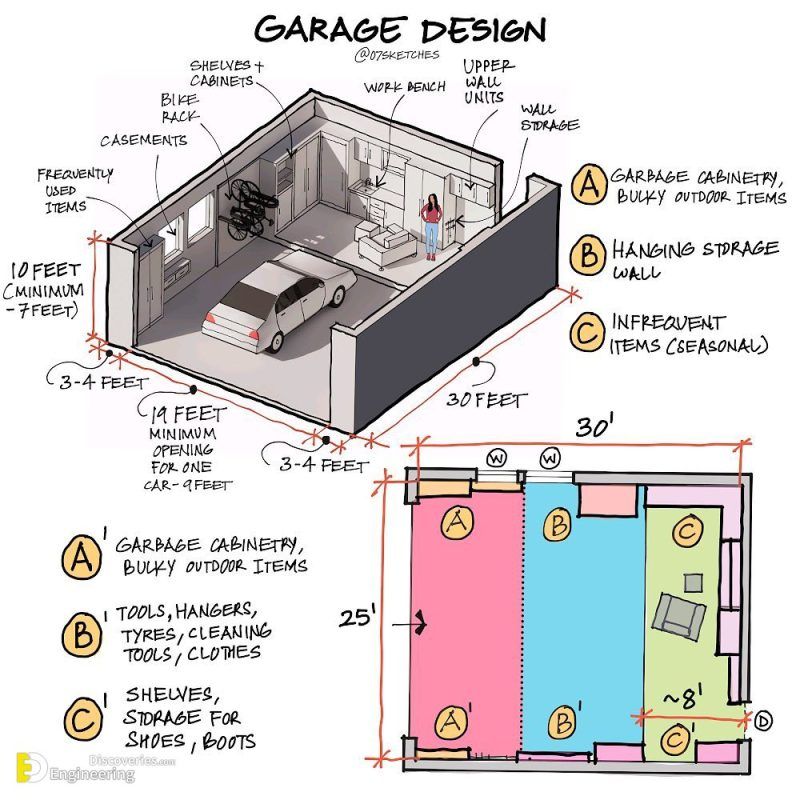“From car parking to seasonal storage, the modern garage is evolving into a multi-functional hub.”
🚙 Why Garage Design Matters
Garages are no longer just car shelters—they’ve become mini storage units, workshops, and utility hubs. A poorly designed garage, however, quickly turns into cluttered chaos. The diagram above shows how smart zoning and storage solutions can transform a 30×25 ft garage into an efficient, accessible space.
📐 Key Features of the Design
- Car Parking Space
- Minimum 19 feet wide opening for one car (9 feet minimum for compact spaces).
- 10 feet clearance length-wise (minimum 7 feet) ensures comfortable vehicle entry and exit.
- Keep 3–4 feet side clearance for walking and storage access.
- Functional Zones
The garage is divided into zones (A, B, C) for different storage needs:- Zone A (Garbage Cabinetry & Bulky Outdoor Items)
- Perfect for bins, lawnmowers, or sports equipment.
- Zone B (Hanging Storage Wall)
- Hooks and hangers for tires, clothes, cleaning tools, and bikes.
- Zone C (Infrequent/Seasonal Items)
- Labeled bins and shelves for winter gear, holiday decorations, or camping equipment.
- Zone A (Garbage Cabinetry & Bulky Outdoor Items)
- Built-In Storage & Workspaces
- Shelves + Cabinets: Keep small tools and supplies tidy.
- Upper Wall Units: Maximize vertical space.
- Work Bench: A dedicated spot for repairs or DIY projects.
- Bike Rack: Keeps bicycles off the floor to save space.
🌟 Why This Design Works
- Accessibility: Frequently used items are placed near the entrance or at arm’s reach, while seasonal storage is tucked away.
- Safety: Tools, chemicals, and sharp equipment can be stored on shelves or wall units, away from car movement.
- Space Maximization: By using walls and ceilings for storage, the garage avoids floor clutter and keeps room for vehicles.
- Flexibility: The design adapts to different family needs—storage for sports gear, garden tools, or even a small hobby workshop.
🏡 The Bigger Picture
A garage is often the first point of entry to a home—its design affects daily convenience. A messy garage creates stress, while an organized one boosts efficiency. With simple zoning, shelving, and smart measurements, any garage can evolve from a dumping ground to a functional extension of the home.
